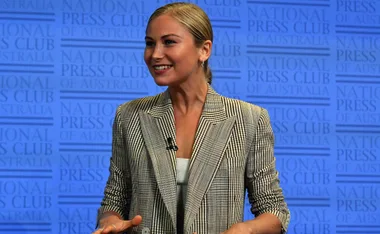This past year has been a momentous one for women in Australia, and much of the shift in public consciousness can be traced back to one young woman’s courage and honesty in speaking her truth.
But this time last year, Brittany Higgins admits she wasn’t at all sure she was made of strong enough stuff to weather the storm that would surely follow if she spoke out about the sexual assault that she alleged she’d been subjected to in her workplace. Particularly as hers was the most powerful and intimidating workplace in Australia – Federal Parliament House.
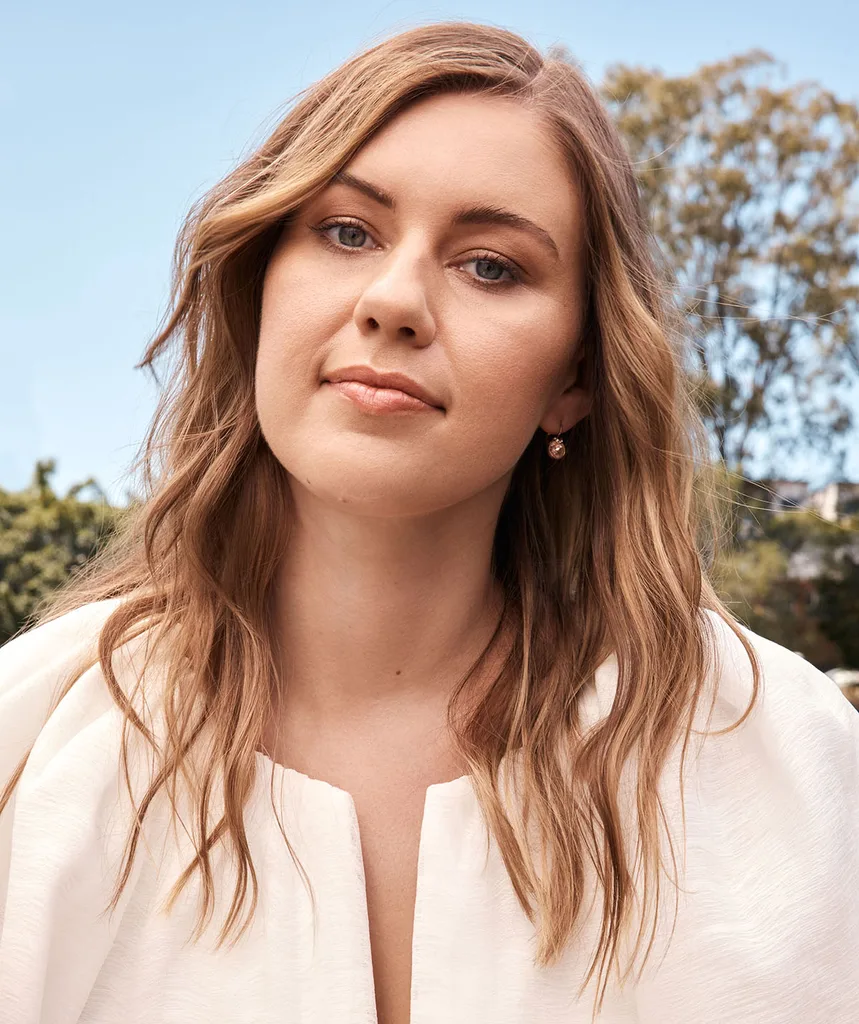
Brittany Higgins’ traumatic public ordeal motivated her to become a catalyst for change.
(Image: Christopher Ferguson)“It was a sombre Christmas, to be honest,” the 27-year-old former Liberal staffer confesses, casting her mind back to last year. “The Four Corners story [about sexual harassment in the Federal Parliament] had recently aired, and I realised it wasn’t just me who’d gone through this experience in Parliament House.
“I was trying to grapple with questions like: Is this a workplace I can continue in? And if I’m leaving, am I going quietly?”
January rolled around. At home in Canberra, the weather was hot and stifling. Brittany watched the Prime Minister present awards to a ground-breaking all-female cohort of Australians of the Year, including Grace Tame, the livewire young advocate for survivors of sexual abuse. It was a bitter-sweet day for Brittany.
“I was in awe of the work [journalist] Nina Funnell and Grace had done on the Let Her Speak campaign,” she begins, quietly. “I thought it was incredible, but … I felt it was hypocritical for someone from the government to be standing on this stage, giving this award, when they weren’t affording people within their own workspaces the opportunity to speak openly about sexual harassment and assault.
“I was elated the issue was getting national recognition, I was elated for Grace, but then it was also tinged with this real sadness. It really hurt. It was actually a really hard day.”
In some respects, however, that day – and talking with friends and family over the summer – steeled Brittany’s resolve. “It got to a point where I went, okay, if I’m going to leave, how do I want to leave? How would I feel about myself, as a person, if I never raised it again? That’s what it came down to. And I just became surer over time.”
Brittany spoke with Samantha Maiden, political editor at news.com.au, and the story of her alleged rape by fellow staffer Bruce Lehrmann in the Defence Industry Minister’s office became a powerful catalyst for change.
While some members of parliament and their staff resorted to backgrounding against her, everyday Australian women – and good men – let it be known they’d had enough. There was a groundswell of public outrage that allegations of a crime as serious as rape could be treated as a political inconvenience and that Brittany had received so little support.
For Brittany, these were traumatic days. She felt betrayed by former employers and people she’d admired. When the then Defence Industry Minister, Linda Reynolds, called her “a lying cow”, she says, “I felt very alone and very isolated.”
She was grateful for the unwavering support of her parents and her partner, David Sharaz, who inferred that the pair were virtually run out of Canberra. And she was grateful for the support of thousands of women and their allies, who gathered in more than 40 towns and cities around Australia to “March 4 Justice”.
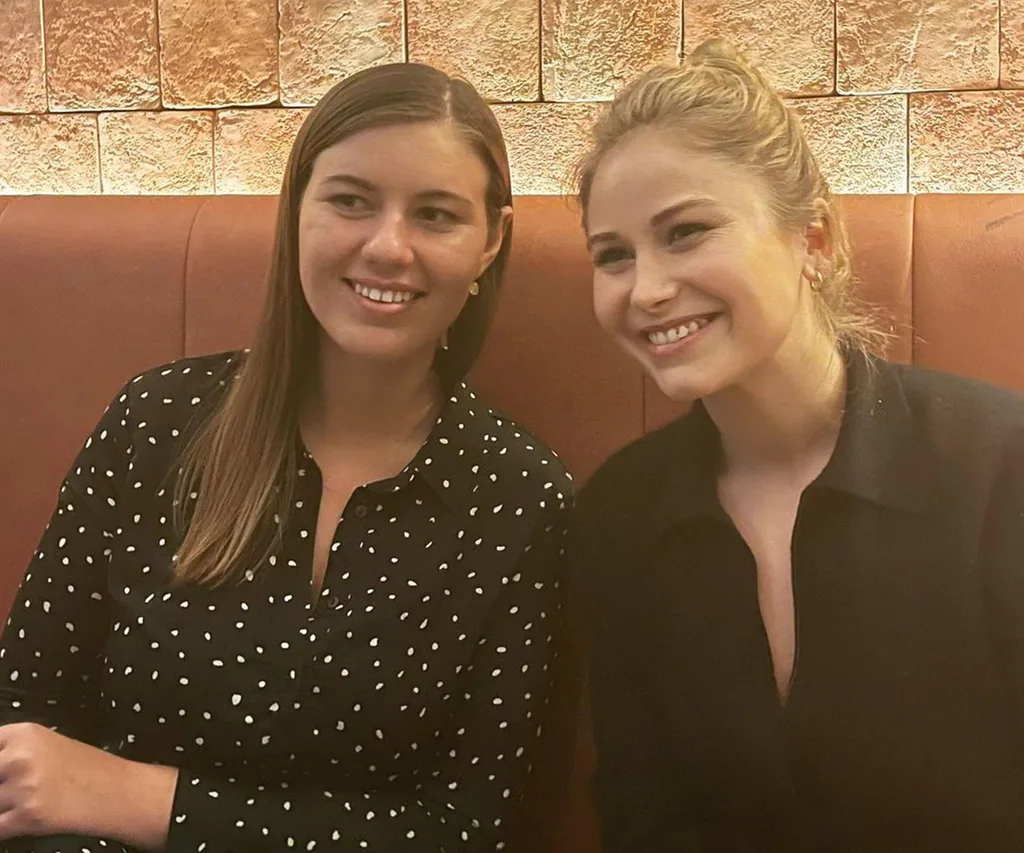
“I was in awe of the work [journalist] Nina Funnell and Grace [Tame] had done on the Let Her Speak campaign.”
(Image: Instagram/@lisa_wilkinson)“It was the most incredible moment,” Brittany says, still moved, eight months later. “I had been so insulated at that point. I’d just been in my dad’s apartment. I hadn’t been engaging with any of the news. So this was the first time where I felt embraced or heard.
“I felt like I’d been an island, and all of a sudden I popped my head up to be embraced by thousands of people on the lawn of Parliament House. It was – it will forever be the most significant moment of my life. Seeing that crowd and hearing them chant, ‘I believe Brittany’, will forever be something I’ll hold dear to my heart. It gives me chills just thinking about it.”
Even so, this period marked a rupture in Brittany’s life. She’d arrived in Canberra two years earlier, a bright, idealistic, young communications graduate, fascinated by politics and its potential to make the world a better place. That interest in politics was inspired by her grandfather, Robert Higgins, a former mayor of the Byron Shire in northern NSW.
“Growing up, I spent a lot of time with my grandpa, that was the way we bonded,” she remembers with a smile. “We’d talk about politics over a copy of The Australian, he’d think I was a crazy progressive and I’d think he was a stuck-in-his-ways old stodge. But he was definitely formative of the way I came to be in that world. I definitely looked up to him, and still do.”
As the year rolled on, Sex Discrimination Commissioner Kate Jenkins delivered her Respect@Work Report, which was commissioned to some extent as a result of Brittany’s courageous stand and the groundswell of support she received. The parliament passed just six of the report’s 12 legislative recommendations.
Brittany, meanwhile, realised that while she might be through with parliament, she wasn’t through with trying to make a difference. She decided to return to university and accepted an invitation from Julia Gillard to take up the role of Visiting Fellow at the Australian National University’s Global Institute for Women’s Leadership, which she sees as an immense opportunity to advocate for young women, and an unexpected honour. It was the final surprise in a year that’s seen little else.
“Oh my gosh,” she says, “this year has changed me fundamentally. It’s challenged everything, which is good. I’ve been dismayed that some of my core beliefs and people who I really looked up to and wanted to be like have let me down.
“On the other hand, I’ve been embraced by so many others and on the whole, I’ve been so touched by the kindness of strangers, essentially. That’s really carried me through this year, which has been pretty difficult. I’ve had people come out of the woodwork who I never would have imagined to be a friend, and that’s been really beautiful.”
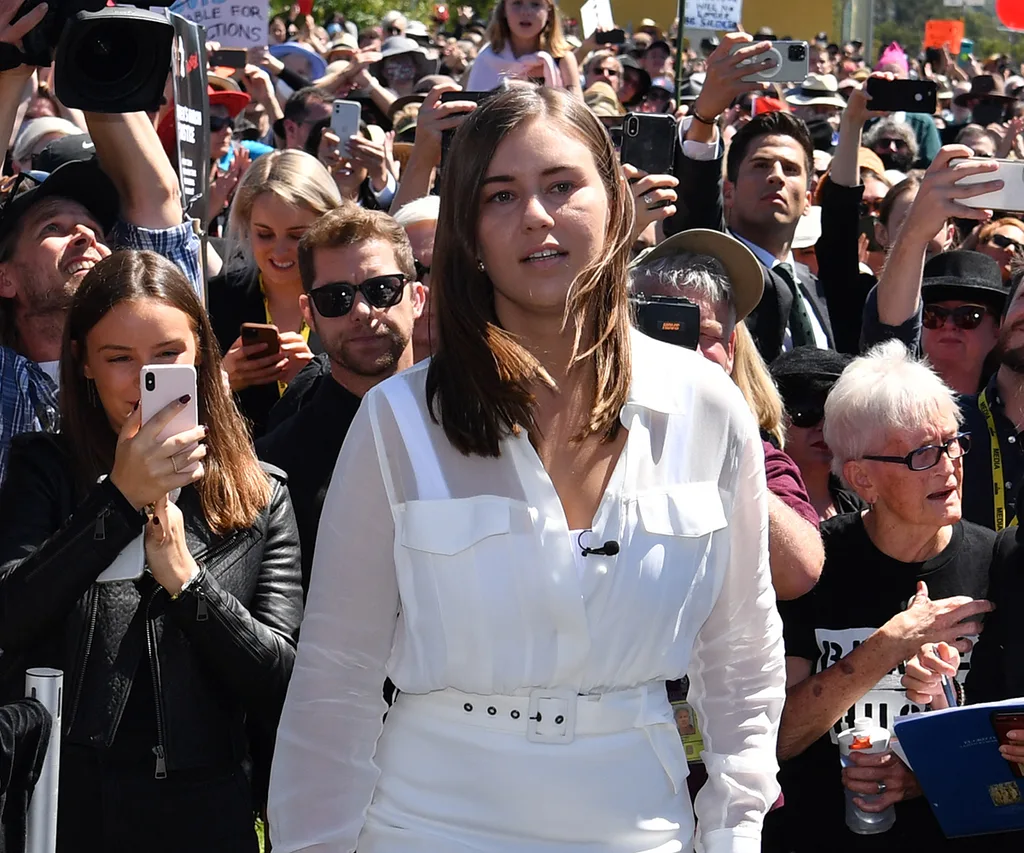
Brittany was grateful for the support of thousands of women and their allies during the March 4 Justice protests.
(Image: Getty)Brittany has also signed a contract with Penguin Random House to write her memoir, a daunting task, but she’s excited about it. “I want to show that an individual voice can make a difference,” she says, still with a genuine bright-eyed optimism.
“I’ve been so inspired by the power of disclosure. If you really open up, and you’re willing to speak … sometimes it can make a world of difference. Often, we feel so insignificant and powerless but I think all of us matter and sometimes you can break through. It’s a story of the power of connection – that’s the story I want to tell. I want it to be a story of triumph and women coming together.”
If you or someone you know has been affected by any of the issues raised in this article, help is always available. Call 1800 RESPECT on 1800 737 732 or Lifeline on 13 11 14.
You can read this story and many others in our Christmas Issue of The Australian Women’s Weekly – on sale now.
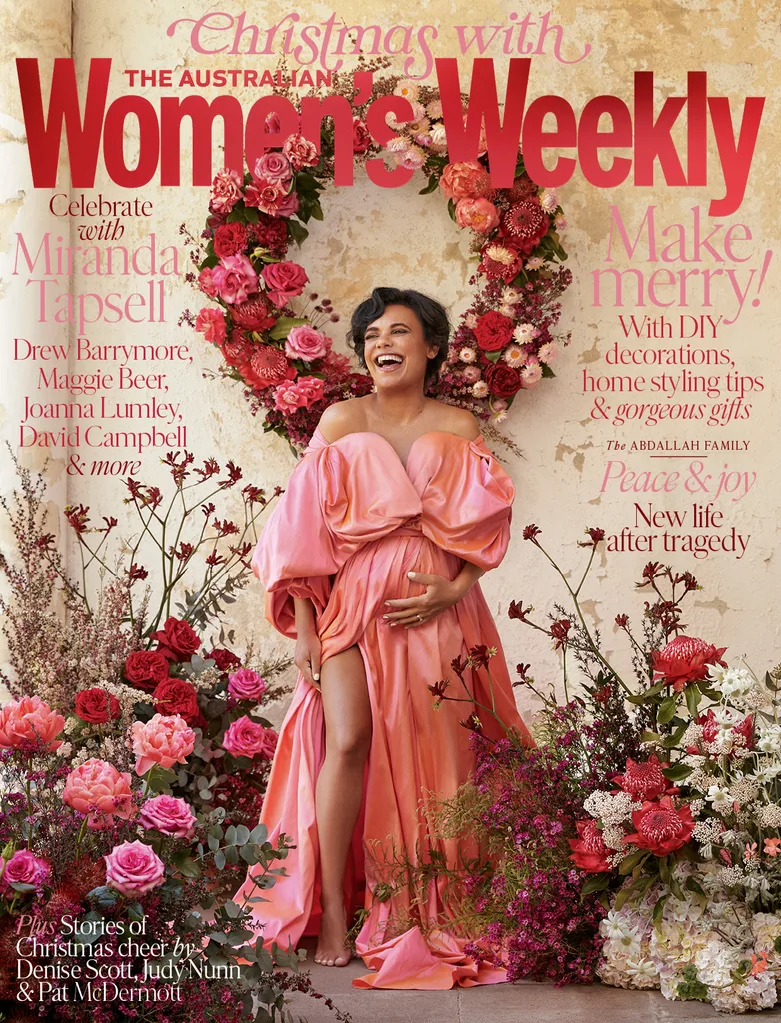
.jpg?resize=380%2C285)
